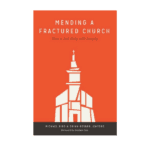
The good news of Jesus? death and resurrection ?is the power of God for salvation to everyone who believes? (Rom 1:16). Salvation is a term which describes God?s work of delivering his people. For Paul such salvation is primarily eschatological. In Romans 5 Paul declared that ?since ? we have now been justified by his blood, much more shall we be saved by him from the wrath of God? (Rom 5:9). Again, in verse 10, Paul says that since believers have been reconciled they ?shall ? be saved by his life.? In both verses Paul speaks of a future reality. The eschatological nature of salvation is also identified in Romans 10:9?11, where those who confess Jesus as Lord and believe on him with their hearts ?will be saved? (10:10). This understanding is reinforced in verse 11; Paul quotes Isaiah 28:16, which says, ?Everyone who believes in him will not be put to shame.? Paul does not view this as a present reality by which believers will no longer experience any shame?rather, this is an eschatological blessing of the coming age. Finally, Paul?s future perspective of salvation is confirmed in Romans 13:11 when he says, ?Salvation is nearer to us now than when we first believed.?
Although fundamentally eschatological, we would be mistaken to assume that Paul limits salvation to the future. In Romans 8:24, Paul also sees salvation to be a past event: It is ?in this hope we were saved.? Since the coming age has invaded the present, salvation has an already-not-yet dimension. Nevertheless, the consummation of this promise is still in the future.
The eschatological salvation that Paul speaks of harkens back to the OT where Israel was promised salvation (Isa 1:27; 10:22; 12:2; 19:20; 30:15; 33:2; 35:4; 37:20; 45:17). In the OT God?s promises of salvation were closely related to his righteousness. This relationship is apparent by looking at Psalms and Isaiah where God?s righteousness is found in conjunction with his salvation. For instance, Psalm 98:2?3 (Psa 97:2?3 lxx) says,
The LORD has made known his salvation (????????); he has revealed his righteousness (???????????) in the sight of the nations. He has remembered his steadfast love and faithfulness to the house of Israel. All the ends of the earth have seen the salvation (????????) of our God.
In this passage, God?s salvation being made known and his righteousness being revealed are closely related. The terminology is parallel?showing that God?s righteousness is a saving righteousness. This understanding is again illustrated in Isaiah 51:5?8:
My righteousness (??????????) draws near,
my salvation (????????) has gone out,
and my arms will judge the peoples;
the coastlands hope for me,
and for my arm they wait.
Lift up your eyes to the heavens,
and look at the earth beneath;
for the heavens vanish like smoke,
the earth will wear out like a garment,
and they who dwell in it will die in like manner;
but my salvation (????????) will be forever,
and my righteousness (??????????) will never be dismayed.
?Listen to me, you who know righteousness,
the people in whose heart is my law;
fear not the reproach of man,
nor be dismayed at their revilings.
For the moth will eat them up like a garment,
and the worm will eat them like wool;
but my righteousness (??????????) will be forever,
and my salvation (????????) to all generations.
God?s salvation for his people is linked to his righteousness (see also Pss 31:1; 36:10; 40:10; 71:2; 88:10?12; 143:1; Isa 46:13).
Paul makes this same connection in Romans 1:16?17, highlighting that the gospel ?is the power of God for salvation? because ?in it the righteousness of God is revealed.? One could say, in the resurrection of the crucified Christ, God?s saving act of righteousness is manifest; ?God?s righteousness is his ?vindicating act? of raising Christ from the dead for us. Here the biblical themes of deliverance of the oppressed, his vindication of his Servant, his faithfulness to Israel and his salvation of the world are implicitly present.? Paul understands that through the preached gospel, the OT promises of God?s mighty act of salvation for Israel have been made available for ?everyone who believes? (Rom 1:16; cf. 3:21?24).
* * *
Adapted from Heirs of Promise: The Church as the New Israel in Romans by P. Chase Sears. Pre-order the Logos digital edition today!






